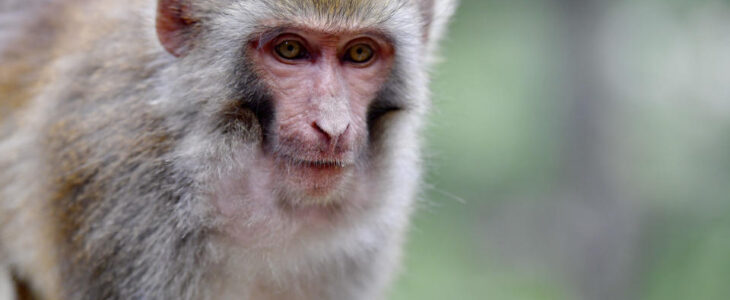
A man in China has died after contracting a rare infectious disease from primates, known as the Monkey B virus, Chinese health officials revealed in a report Saturday. The victim, a 53-year-old veterinarian based in Beijing, was the first documented human case of the virus in China.
According to the Chinese Center for Disease Control and Prevention, the man worked in a research institute that specialized in nonhuman primate breeding and dissected two dead monkeys in March. He experienced nausea, vomiting and fever a month later, and died May 27. His blood and saliva samples were sent to the center in April, where researchers found evidence of the Monkey B virus. Two of his close contacts, a male doctor and a female nurse, tested negative for the virus, officials said.

The Monkey B virus, or herpes B virus, is prevalent among macaque monkeys, but extremely rare – and often deadly – when it spreads to humans. In humans, it tends to attack the central nervous system and cause inflammation to the brain, leading to a loss of consciousness, said Kentaro Iwata, an infectious disease expert at Kobe University in Tokyo. If untreated, there’s about an 80 percent fatality rate.
There have been fewer than a hundred reported human infections of herpes B since the first case of primate-to-human transmission in 1932, many of them in North America, where scientists tend to be more aware of the disease, Iwata said. There are likely to be cases of the virus that have gone undetected, but experts still widely believe that it is an extremely rare condition among humans.

Victims have tended to be veterinarians, scientists or researchers who work directly with primates and could be exposed to their bodily fluids through scratches, bites or dissections. In 1997, a primate researcher in New York died six weeks after a caged monkey flung a drop of liquid at her face, hitting her eye. According to the U.S. Centers for Disease Control and Prevention, there has only been one documented case of an infected human spreading the virus to another person.
Both herpes B and the novel coronavirus are “the consequence of species jumps,” said Nikolaus Osterrieder, dean of the Jockey Club College of Veterinary Medicine and Life Sciences in Hong Kong. “But the important difference is that in the case from herpes B, it’s a dead end. It’s not jumping from one human to another human,” he added. “SARS-CoV-2, on the other hand, acquired the ability to spread to a new host.”
Osterrieder said herpes B is very well-adapted to macaque monkeys and unlikely to mutate in a way that it will start to spread rapidly among humans. Nonetheless, both he and Iwata emphasized that they hope more people learn about the disease and take the right safety precautions, especially when interacting with monkeys in non-research settings, such as at a zoo or in nature. Officials in Florida debated last year what to do over a rapidly multiplying population of rhesus monkeys – an emerging tourist attraction – many of which carried the herpes B virus.
Chinese health authorities said discovery of the Monkey B virus in a human suggests that it might “pose a potential zoonotic threat to occupational workers,” adding that it’s necessary “to strengthen surveillance in laboratory macaques and occupational workers.” By Monday, news of the veterinarian’s death had been viewed more than 110 million times on the Chinese social media platform Weibo.
“Apart from researchers, most people should stay away from wild animals,” said one post with several thousand likes. “You may want to be close to nature, but nature doesn’t want to be close to you.”
Last week, Dallas County health officials in Texas reported the case of a man with a rare case of monkeypox, which can also be transmitted when people are bitten or scratched by an animal.
Credit: Yahoo News
